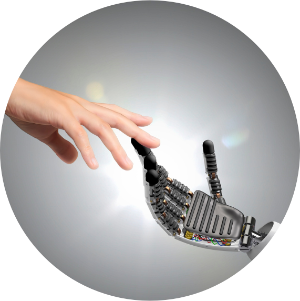How the Last Decade Transformed HR Delivery
If you’ve been in the HR world for a while, you’ve probably noticed something huge: the role of HR has completely evolved over the last ten years. What used to be a mostly behind-the-scenes, paperwork-heavy department has now become one of the most strategic parts of any organization. Thanks to tech advances, shifting employee expectations, and the rise of flexible work, HR is doing more than ever—and doing it differently.
Let’s break down how HR has changed and why it matters for the future of work.
Moving From Admin Tasks to Strategic Powerhouse
Not long ago, HR was mainly focused on administrative tasks—managing employee files, processing payroll, and ensuring compliance with workplace regulations. Fast forward to today, and the role of HR has transformed dramatically. It’s no longer just about operations; HR is now a key strategic partner. HR professionals are actively involved in shaping organizational culture, boosting employee engagement, driving diversity and inclusion efforts, and supporting change management initiatives. They work side-by-side with senior leadership to align talent strategies with business objectives, making data-driven decisions to support growth, innovation, and long-term success. Today’s HR leaders are not just problem-solvers—they’re strategic advisors helping steer the organization forward.
The Digital Makeover
One of the biggest game-changers? Technology. HR teams have moved away from clunky legacy systems to sleek, cloud-based platforms like Workday, Humi, BambooHR, and SAP SuccessFactors. These tools let HR run smoother by automating repetitive work, giving real-time insights, and offering self-service options for employees.
Now, instead of chasing paperwork, HR can focus on what really matters—Transforming Workplaces into places where employees thrive.

Smart Tech, Smarter Decisions
Artificial Intelligence (AI) and data analytics have taken things to the next level. Resume screening? AI can do it. Candidate chats? There’s a bot for that. Need to know why people are leaving or who’s at risk of burnout? Predictive analytics has your back.
It’s not about guesswork anymore—HR decisions are powered by data, and that leads to smarter, more impactful outcomes.
Thriving in the Remote World
Remote and hybrid work went from being a trend to a norm—and HR had to pivot fast. That meant rewriting policies, running virtual onboarding, and figuring out how to keep teams connected without an office. Platforms like Zoom, Slack, and Teams became essential tools, and HR had to get creative with how to support employees from afar.
It’s also pushed HR to become better at digital engagement and supporting mental health in new ways.
Putting the Employee First
These days, companies know that a great employee experience isn’t just nice—it’s non-negotiable. HR has shifted toward more personalized, people-centered service. Think pulse surveys, mental health resources, and custom career development plans.
It’s all about creating a workplace where people feel seen, supported, and set up to succeed.
More Agile, Less Siloed
Old-school HR departments with strict silos? Not so helpful anymore. Today’s HR teams are built for speed and flexibility. They’re using agile methods, forming cross-functional teams, and leaning into models like Centers of Excellence and HR Business Partners.
This means HR can move faster, stay aligned with business needs, and deliver better service across the board.
HR on the Go
People expect everything to be mobile-friendly these days, and HR is no exception. From checking pay stubs to signing up for benefits, employees want easy, 24/7 access. HR platforms have stepped up with mobile apps and self-serve tools that put control in employees’ hands—anytime, anywhere.
Convenience isn’t just nice—it’s expected.
Feedback and Growth, All the Time
Annual performance reviews are becoming a thing of the past. Today, it’s all about continuous feedback and real-time recognition. Employees want to grow, and HR is playing a big role in helping them do that through skills-based development and tailored learning paths.
The focus is on building agile, future-ready teams who are always learning.
What’s Next?
HR has come a long way—and it’s not slowing down. It’s gone from paperwork and policies to strategy and storytelling. From gatekeeping to guiding. The most successful organizations going forward will be the ones that continue investing in people-first, tech-enabled HR practices.
Because at the end of the day, HR isn’t just managing change anymore—it’s leading it.
Your Engaged Assignment
If you’re looking to transform your workplace, reach out! We’d love to bring our unique HR model and expertise to your organization.


